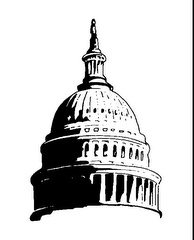From the Daily Herald
Cook County homeowner tax relief enacted
'7 percent' relief extended for tax bills
By Rob Olmstead Daily Herald Staff
Published: 10/22/2007 11:25 PM Updated: 10/23/2007 6:42 AM
As expected, Cook County board members on Monday enacted a form of homeowner tax relief recently passed by the state legislature.
While that will limit the increase in taxes you pay, it's probably a safe bet, however, that taxes will increase in the Northwest suburbs. That prediction is based on tax rates, which were also released Monday by the county clerk.
With the approval of the tax rates, the county can begin delivering tax bills that originally would have been due Oct. 1. Officials said that now bills will be delivered by Nov. 3 and will be due Dec. 2.
Although the rates affecting the bills appear to trend upward in most suburban taxing districts by single-digit percentages, that doesn't necessarily equate to a similar percentage increase in taxes. But it is generally safe to say, according to county officials, that if your tax rate is going up, so will your tax bills, because it's unlikely that many governments are decreasing the total amount they ask for, or levy.
Your bill could go up more than the tax rate increase if your increased home value from the last reassessment is still filtering in through the 7-percent-a-year relief measure enacted Monday.
For instance, if your assessed home value increases by 7 percent, and your tax rate increases 5 percent, you could get a tax bill higher by more than 5 percent.
The tax relief measure the county board passed Monday is commonly known as the "7 percent law." It limits to 7 percent the amount most homeowners' property values can increase for taxing purposes year over year. The assessment increase is artificially slowed by using a flexible exemption amount -- $5,000 to $20,000 -- subtracted from the assessed value of the home.
The intent is to keep taxes from skyrocketing in hot neighborhoods where value increases can far outpace inflation.
But the measure, originally enacted three years ago, was expiring, and the legislature passed a new form of it this year that initially increases the exemption amount to, in most cases, $33,000 the first year, $26,000 the next and $20,000 the third year.
Because Cook County is reassessed in three parts, one part per year, Chicago will be the first area to see the $33,000 exemption, applicable to this year's tax bills.
North and Northwest suburbanites will still be using the $20,000 maximum exemption under the old system for the tax bills that will be delivered in just a few weeks but will enjoy the benefits of the larger exemption with next year's bills. South suburban residents will see the larger exemption the year after that.
Subscribe to:
Post Comments (Atom)

Members meet with Senator Murphy after Legislative Breakfast



2 comments:
So assessments and taxes continue to rise while property values are going down. Wasn't it their argument that assessments needed to go up to keep pace with values rising a few years ago. Using that argument, shouldn't assessments be going down now? Yeah, right.
Good fill someone in on and this post helped me alot in my college assignement. Thank you as your information.
Post a Comment